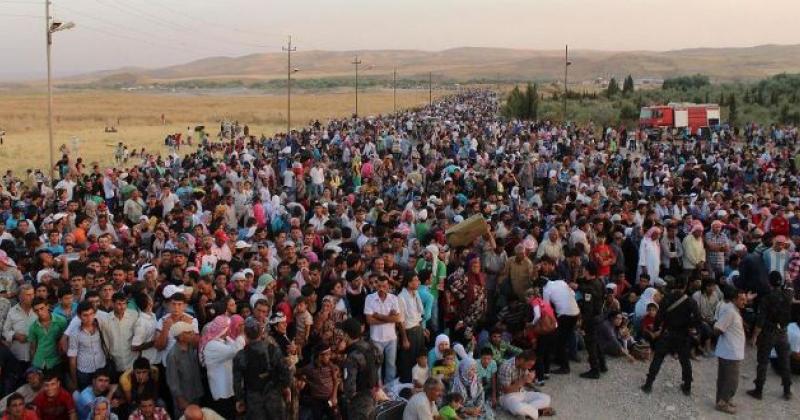The Pope recently, in a wide ranging radio interview, made reference to the security implications of the current refugee influx into the European Union. The Pope did not simply warn us that some ISIS wolves may be entering dressed as refugee sheep, rather he emphasised that we should receive refugees despite the risks involved. Nevertheless, he did point out the obvious: that with such a large number coming in, and coming in so quickly, it is has proved impossible to vet each arrival.
Yet the idea that ISIS may be flooding Europe with either its sympathizers or its sleepers is a potent one, which has done the rounds on social media. The truth of the matter is that there may well be some ISIS-sympathizers amidst the refugees, and even some ISIS agents, through the numbers might be small, and much smaller than the ISIS sympathizers and agents who are already in Europe, because born there or long resident there. But this is guess work. When there are no border checks, one really has no dependable idea of who is coming in. Indeed, even when there are elaborate border checks, and passports and visas, even then one’s control over who enters seems less secure than one might think.
The wolf in sheep’s clothing idea is of course one that stands for something else: the deep uneasiness that many feel about unrestricted Muslim immigration into what was Christian Europe. The only leading politician who has given voice to this fear is Victor Orbán, the Prime Minister of Hungary. Mr Orbán’s intervention has underlined that a mass movement of people will have consequences, many of them unforeseen; and that Europe’s identity is based on Christianity, which must be brought into question by continuing Muslim immigration.
On both these matters Mr Orbán is completely correct, but the never quite expressed riposte goes as follows: we do not care about Europe’s Christian identity, and if it is watered down or obscured, so what? As for the consequences of welcoming so many from outside, these people will of course be integrated. The trouble with these answers is that while many might not care about our identity as a Christian continent, some of us still do, and do not like being told that our outlook, rooted in our history and culture, is somehow not important. And the recent history of Europe provides ample proof that integration has not been an unqualified success.
What perhaps defeats the Hungarian Prime Minister’s logic (and those of the secularist tendency who think the Christian foundation of Europe unimportant) is the simple fact that to be Christian is to welcome people in, particularly those who need food and shelter and a safe place to live. That is the Christian way. So, Victor Orbán is essentially claiming that we should preserve our Christian identity through anti-Christian behaviour; and those who think our Christian identity does not matter nevertheless think we should act in a Christian manner (not that they would call it that.) Both positions are self-contradictory.
Is Christianity in Europe about to die out? Is this recent movement of people part of something much more sinister? Some certainly believe so. But that the same time, there are some signs of hope.
Comparisons with the twilight years of the Roman Empire may be inexact, but they are irresistible, and the scenes of crowds waiting to cross borders does have some historical parallel with, for example, the Goths who begged to be let into the Roman Empire, in the year 376, in order to get away from the Huns. That ended badly, but it could have ended differently. The outsiders, then as now, wanted to get into Europe, not to destroy it, but to enjoy its advantages. It is worth remembering that the people now coming to Europe either for asylum or simply as migrants, are trying their best to get away from the so called Islamic State, rather than carry on its work of destruction here. They know enough about such destruction as it is, and have seen enough war, God knows, for one lifetime.
